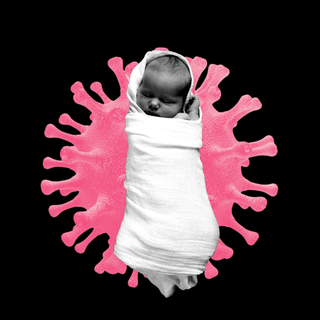Disruptions in healthcare services due to the global pandemic may have resulted in an estimated 228,000 additional child deaths in 2020, besides 11,000 additional maternal deaths, a new UN report has found.
Commissioned by the United Nations Children’s Fund (UNICEF), the report, which was published last night, analyzed the direct and indirect effects of Covid19 on healthcare and how disruptions impacted child and maternal mortality in Afghanistan, Nepal, Bangladesh, India, Pakistan, and Sri Lanka.
In India, child mortality rose by 15.4% in 2020, the highest compared to other countries included in the study. Maternal deaths were the highest in Sri Lanka and Pakistan at 21.5% and 21.3%, respectively. These mortality rates may be attributed to crucial healthcare services across the board, ranging from nutrition to immunization, being halted in 2020.
Lack of access to contraception during 2020, may also have led to around 400,000 additional unwanted pregnancies among teenagers — and 3.5 million overall — the report estimates. In addition, the report also estimates an additional 5,943 deaths among adolescents in South Asia due to disruptions in treatments for tuberculosis, malaria, typhoid, and HIV/AIDS.
Related on The Swaddle:
UN Urges Countries To Protect People From Mental Health Crisis Amid Covid19 Pandemic
What makes the numbers particularly grim is that South Asia had “made remarkable progress in improving the health of mothers and children,” over recent decades, according to Sun Ah Kim, deputy regional director of UNICEF-South Asia. And until the pandemic struck, the advancements had helped the region avoid “millions of needless deaths” by expanding access to “life-saving interventions.”
“The year 2020 brought a great shock to South Asia… particularly for the most vulnerable women and children,” Kim noted, warning that the pandemic is “reversing the development gains made over recent years and [risking] a negative impact on the overall wellbeing of the population for years to come.”
The impact may have also been amplified by unemployment, poverty, and food insecurity caused by the pandemic. “Given the cultural and social context of South Asia, the suspension of these services is deepening inequalities…” Bjorn Andersson, regional director of the United Nations Population Fund (UNFPA) for Asia-Pacific, warned.
The report calls upon governments and policymakers to prioritize essential health services for pregnant women, adolescents, and infants, besides strengthening supply chains for non-Covid19 vaccines as well. It also recommended price-regulation and cash transfer programs for economically-deprived families to ensure they can access available services.
“It is absolutely vital that these services are fully restored for children and mothers who are in desperate need of them, and that everything possible is done to ensure that people feel safe to use them,” George Laryea-Adjei, regional director of UNICEF Regional-South Asia, said in a statement.




